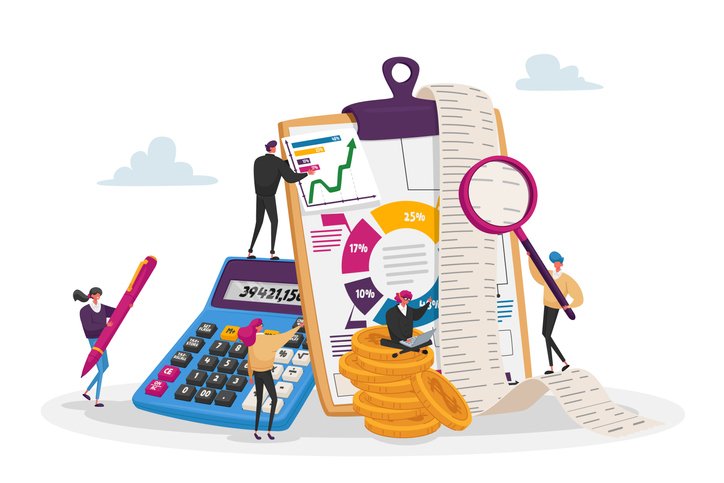Great Ideas For Selecting Refinansiere Boliglån
Wiki Article
Consumer Loans Are Mostly Used For What?
Consumer loans can be used for many reasons and are based on the individual's financial and personal situation. Some common purposes for consumer loans include- Debt Consolidation- Combining multiple debts into a single loan to make payments easier and possibly decrease the rate of interest.
Home Improvements Financing improvements, repairs or upgrades of the home or property.
Auto Purchases: This entails purchasing a new car or second-hand, by using auto loans or personal loans.
Education Expenses (Books tuition, books or any other education expenses)
Medical Expenses. Paying for medical expenses and procedures.
Personal expenses finance personal expenses such as travel, weddings or other major expenses. Have a look at the best Søk Forbrukslån for blog info including refinansiere med betalingsanmerkning, rente lån, refinansiere lån, bank norge, forbrukslån refinansiering, refinansiere forbruksgjeld, forbrukslån best rente, lån med lavest rente, beregne lån, rente boliglån and more.

What Happens When Interest Rates, Taxes Or Insurance Prices Alter?
Mortgage calculators generally have limitations in their ability to deal with adjustments in property taxes, interest rates or insurance prices over time. They provide estimates based on the information that was input at the time the calculations were made. Here's how they usually handle these factors- Interest Rates- Some mortgage calculators let users enter different interest rates in order to determine how they affect monthly payments. But, they do not automatically track or update changes in real-time. Users have to manually alter the interest rate in order to simulate various scenarios.
Property Taxes- Calculators may include an estimated property tax field based on the user's input, or a typical property tax rate. These figures are usually static and don't reflect the future trends in tax rates, which can fluctuate in response to local government decisions.
Insurance Costs - Similar to property taxes, mortgage calculators may include a section to calculate the estimated cost of homeowner's insurance dependent on input from the user or average rates. They don't take into account the possibility of future increases in insurance premiums due to market conditions or changes to the individual policies.
Limitations in Real-Time Updates- Mortgage calculators provide estimates based on the data provided at the time of entry. They do not automatically adapt or update in real-time to reflect fluctuations in interest rates and taxes.
Due to these limitations mortgage estimators are great tools to make estimates for preliminary purposes and comparing various scenarios. In order to get the most up-to-date and accurate information on the rate of interest, tax and insurance charges and how these may change in the future, homeowners should consult with financial advisors, lending institutions, or any other experts. Follow the most popular Boliglånskalkulator for more advice including refinansiere boliglån, samle forbrukslån, lav rente forbrukslån, refinansiering av boliglån, kalkulator lån, bolig låns rente, kalkulator lån, lån uten sikkerhet med betalingsanmerkning, forbrukslån kalkulator, lån med sikkerhet and more.
How Is Credit Rating Calculated And Integrated Into The Approval Of A Loan?
Credit scores are calculated based on many factors, and they are a major factor in credit approval. Although the algorithms of credit bureaus might differ slightly, these are the most important factors that often affect credit scores: Your payment history (35 percent) The most important aspect is your history of payments. It determines whether you've paid off your previous credit cards in time. Bankruptcies, late payment, and defaults have a negative impact on this category.
Credit Utilization (30 percent) - This factor measures the amount of credit you're utilizing relative to the total credit limit of all accounts. Lower utilization ratios are favorable for higher credit scores.
Length of Credit History (15%)- The length of your credit history is important. Longer credit histories demonstrate an exemplary track record of responsible management of credit.
Types Credits Used (10 percent)Utilizing a mix of credit types (such as installment loans and credit cards) will help you boost your credit score. It is a sign of diversity in credit management.
New Credit Inquiries (10)- Opening multiple credit accounts in short time can affect your score. Each time you are asked to provide hard evidence by a lender during credit checks will reduce your score.
Lenders consider credit scores when evaluating an applicant's creditworthiness. A higher credit score typically signifies lower credit risk and can lead to more favorable loan terms, with lower interest rates, and greater chances of approval.
Lenders consider your credit rating alongside other variables like your earnings, employment history and debt-to income ratio as well as the reason for the application. The score requirements of different lenders are different. Credit scores tend to be higher and improve the odds of being approved.
To keep a good credit score, it is essential to be responsible with your credit. This means paying on time payments, keeping your usage of credit to a minimum, and managing credit types in a wise manner. Your score can be improved by regularly checking your credit report, correcting mistakes and paying on time. See the top rated Refinansiere Boliglån for blog info including refinansiere boliglån kalkulator, rentekalkulator boliglån, søknad om boliglån, refinansiering av lån, bank norge, boliglån rente kalkulator, lån med lav rente, flytte boliglån til annen bank, boliglåns kalkulator, forbrukslån kalkulator and more.

